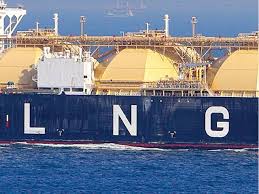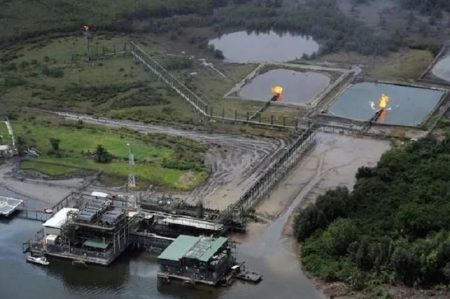31 October 2014, Lagos – The Nigerian Content (NC) Act 2010 is yielding more fruitful results as 35 young Nigerians have left Nigeria for South Korea to acquire skills in ship building.
The youths, who are to be trained on various aspects of ship building, will spend between six to nine months in South Korea.
The is the second delegation after the first delegation of 60 youths who went to South Korea last May for three months course.
 Speaking at the departure ceremony for the trainees in Lagos, Head, Shipping Management Knowledge Transfer, Nigerian Liquefied Natural Gas Limited (NLNG), Mr. Henry Agbodjan, said 28 of these trainees who performed above average are amongst the 35 youths selected by NLNG to undergo the ship building training in South Korea.
Speaking at the departure ceremony for the trainees in Lagos, Head, Shipping Management Knowledge Transfer, Nigerian Liquefied Natural Gas Limited (NLNG), Mr. Henry Agbodjan, said 28 of these trainees who performed above average are amongst the 35 youths selected by NLNG to undergo the ship building training in South Korea.
He also revealed that apart from these young Nigerians, some Nigerian firms are also benefitting from the provisions of the NC Act as NLNG had made it mandatory for them to be fully involved in the provisions of specific services in the ship building project in South Korea.
According to him, the Nigerian companies supplying materials for use in building the ships, Nexans Kabelmetal, for example, are expanding the frontiers of their markets, grow their profits and contribute to the growth of their companies and its people.
“Nexans Kabelmental is supplying cable worth $1.1 million for the construction of the six ships. $45 million will be spent on procuring goods and services from Nigeria for the six ships, to further Nigerian content development. Beyond meeting our local content obligation, these opportunities NLNG has provided for training of young Nigerians and engaging Nigerian companies in the building of the six ships helps the realisation of our vision to help build a better Nigeria that all of us can be proud of”, he added.
He explained that NLNG was committed to this vision in everything it was doing, and enjoined others to join the firm in the effort to make it a tangible reality for the good of the country.
Among other things, NC is expected to increase indigenous participation in the oil and gas industry, build local capacity and competencies, create linkages to other sectors of the national economy and boost industry contributions to the growth of Nigeria’s gross domestic product (GDP).
The firm, which is seen as the arrowhead of the federal government’s efforts to eliminate gas flaring in the country had in January 2013 through one of its subsidiaries, Bonny Gas Transport (BGT), signed contracts to procure six new ships from Hyundai Heavy Industries (HHI) and Samsung Heavy Industries to ensure NLNG is well positioned for the future growth of the global LNG market.
Established in 1989 to harness and monetise Nigeria’s vast natural gas resources, NLNG is a private limited liability owned by Nigeria National Petroleum Corporation (NNPC) with 49 per cent, Shell Gas B.V. with 25.6 per cent, Total LNG Limited with 15 per cent and Eni International with 10.4 per cent.
As part of its agreement to build these new ships, NLNG said it had ensured that there would be opportunity to develop Nigerians and use Nigerian manufactured products in building the ships thereby promoting the development of Nigerian capacity and capability.
In all, about 580 students will be trained on ship construction. While part of the training will take place in Nigeria (Bonny and Lagos) for 400 trainees, another will take place in South Korea with 180 trainees participating.
– This Day



